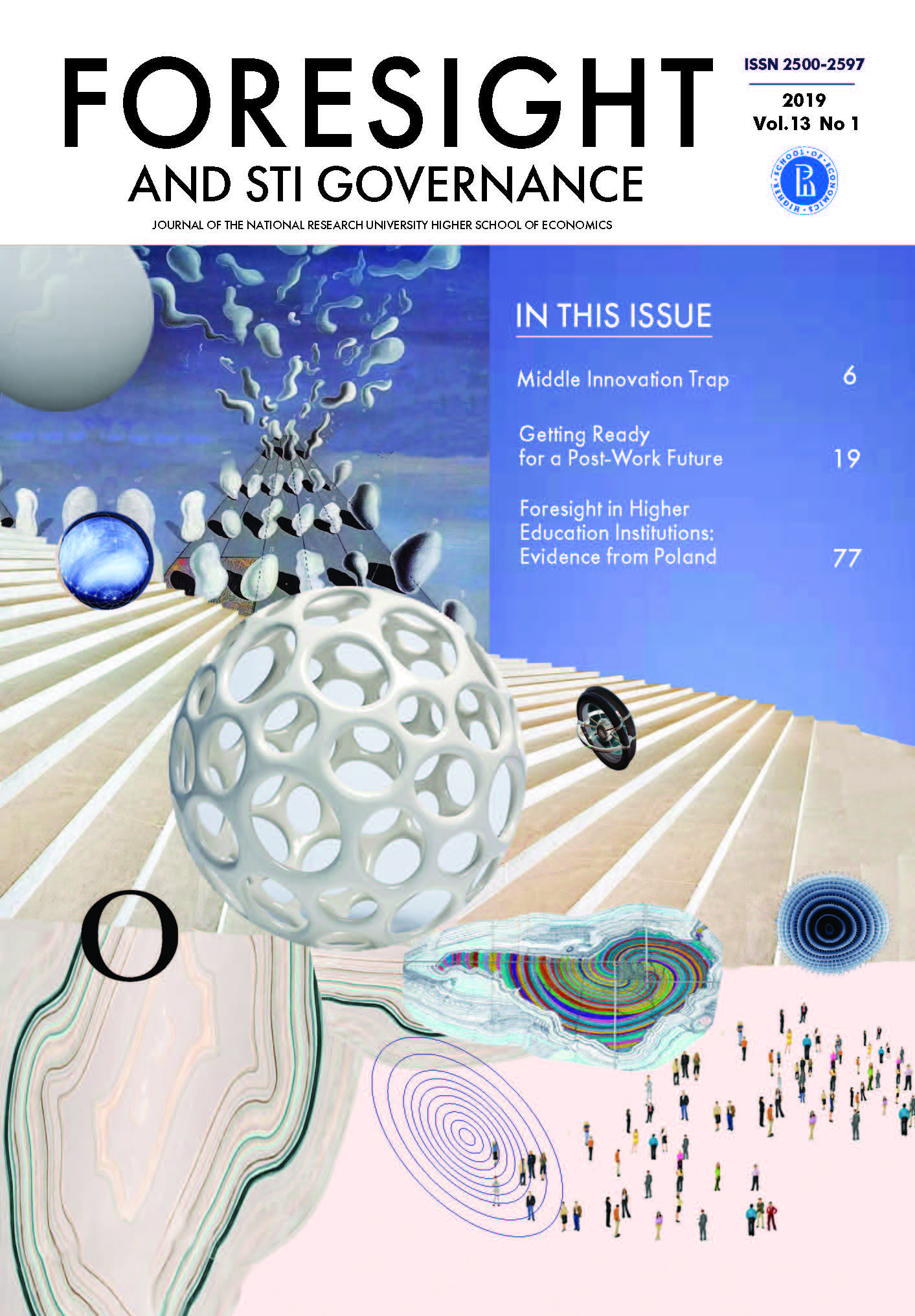Abstract
Over the last ten years, innovation vouchers have become a frequently used instrument of the innovation policy mix of EU countries. Vouchers help stimulate collaborative research and innovation activities among small and medium sized enterprises and research organizations. This article analyses the design and outcomes of the innovation voucher instrument in the EU-funded project ener2i. Vouchers were here successfully applied with the dual purpose of coupling innovation stimulation and support for renewable energy and energy efficiency in four target countries: Armenia, Belarus, Georgia, and Moldova. The voucher projects underwent review by internal experts and the whole scheme was reviewed by a panel of experts who were not involved in ener2i. This first pilot group of vouchers in the target countries proved successful in stimulating renewable energy usage and energy efficiency through measures such as market studies, prototyping, and certification. Also the goal of establishing contacts between research and business could be reached. To achieve these results, it proved instrumental that the design of the voucher scheme foresaw a low administrative effort necessary for accommodating the relevant businesses and that the specific features of the target countries were taken into account.
References
Antanavičius J., Christenko A., Krūminas P., Martinaitis Ž., Paliokaitė A. (2017) Ex-Post Evaluation of the Ministry of Economy Instrument Inno-Vouchers LT. Impact on Business R&D Expenditure and Summary of Final Report. Vilnius: Kuriame Lietuvos ateitį, Ūkio ministerija, Visionary Analytics.
Borras S., Edquist C. (2013) The choice of innovation policy instruments // Technological Forecasting & Social Change. Vol. 80. P. 1513-1522.
Bullinger H.-J., Reid A., Lemagnen M., Wise E. (2017) Specific Support for Lithuania. Fit for the Future. Brussels: European Commission. Режим доступа: https://rio.jrc.ec.europa.eu/en/policy-support-facility/specific-support-lithuania, дата обращения 14.08.2018.
European Commission (2003) Commission Recommendation of 6 May 2003 concerning the definition of micro, small and medium-sized enterprises (2003/361/EC). Brussels: European Commission.
European Commission (2009) Availability and Focus on Innovation Voucher Schemes in European Regions. Brussels: European Commission.
European Commission (2011) Greenovate! Europe. Guide to green innovation vouchers. Experiences from testing vouchers for renewable energy service innovators. Brussels: European Commission.
European Commission (2016) Clean Energy for All Europeans. Communication from the Commission to the European Parliament, the Council, the European Economic and Social Committee, the Committee of the Regions and the European Investment Bank. Brussels: European Commission.
Gulda K., Bonas G., Spiesberger M., Funeriu D., Heijs F., Räim T., Weiss B. (2016) Peer Review Report on Moldova's Research & Innovation System. Brussels: European Commission. Режим доступа: https://rio.jrc.ec.europa.eu/en/library/horizon-2020-policy-support-facility-peer-review-moldovan-research-and-innovation-system, дата обращения 14.08.2018.
Gulda K., Schlicht M., Spiesberger M., Nedeva M. (2018) Specific Support to Georgia. Improving the Effectiveness of Georgia’s Research and Innovation System through Prioritisation, Selectivity of Funding and Science-Business Links. Brussels: European Commission. Режим доступа: https://rio.jrc.ec.europa.eu/en/policy-support-facility/specific-support-georgia, дата обращения 14.08.2018.
Kern F., Kivimaa P., Martiskainen M. (2017) Policy packaging or policy patching? The development of complex energy efficiency policy mixes // Energy Research & Social Science. Vol. 23. P. 11-25.
Kivimaa P., Kern F. (2016) Creative destruction or mere niche support? Innovation policy mixes for sustainability transitions // Research Policy. Vol. 45. P. 205-217.
Matulova P., Stemberkova R., Zdralek P., Maresova P., Kuca K. (2015) Innovation vouchers as a segment of regional innovation strategy // Procedia Economics and Finance. Vol. 26. P. 842-848.
Nauwelaers C. (2018) Mutual learning exercise (MLE) on national practices in widening participation and strengthening synergies - Topic Report: Encouraging science-business cooperation (Topic 2 Widening). Brussels: European Commission.
OECD (2010a) Innovation Vouchers. Paris: OECD.
OECD (2010b) OECD Innovation Policy Handbook. Paris: OECD.
Reichardt K., Rogge K. (2015) How the policy mix impacts innovation: Findings from company case studies on offshore wind in Germany // Environmental Innovation and Societal Transitions. Vol. 18. P. 62-81.
Sala A., Landoni P., Verganti R. (2016) Small and medium enterprises collaborations with knowledge intensive services: An explorative analysis of the impact of innovation vouchers // R&D Management. Vol. 46. № S1. P. 291-302.
Schot J., Steinmueller W.E. (2018) Three frames for innovation policy: R&D, systems of innovation and transformative change // Research Policy. Vol. 47. P. 1554-1567.
Spiesberger M., Gomez J., Seigneur I. (2018) Smart specialisation and social innovation: From policy relations to opportunities and challenges. Evidence from six case studies on clean energy regional initiatives. JRC Technical Report. S3 Policy Briefs Series 24/2018. Brussels: European Commission.
Urpelainen J. (2018) Vouchers can create a thriving market for distributed power generation in developing countries // Energy Research & Social Science. Vol. 46. P. 64-67.
Weiss G. (2015) ener2i. ENErgy Research to Innovation. Reinforcing cooperation with Eastern Partnership (EaP) countries on bridging the gap between energy research and energy innovation. Paper presented at the EU-Eastern Partnership STI Cooperation in Addressing Energy Research and Innovation Policy Stakeholders Conference, Minsk, 12-13 October 2015. Режим доступа: http://www.scienceportal.org.by/upload/2015/October/EaP/ener2i_minsk_weiss_final_comp%203.pdf, дата обращения 19.10.2018.

This work is licensed under a Creative Commons Attribution 4.0 International License.

